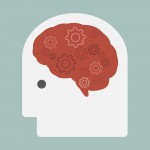
Patrick Kennedy-Williams summarises a recent meta-analysis, which finds that combined treatment with psychotherapy and antidepressants is more effective than treatment with antidepressants alone.
[read the full story...]
Patrick Kennedy-Williams summarises a recent meta-analysis, which finds that combined treatment with psychotherapy and antidepressants is more effective than treatment with antidepressants alone.
[read the full story...]
This study explores the prevalence of psychiatric disorder and comorbidity among a UK sample of young people with experience of homelessness. It finds an extremely high prevalence of mental illness, combined with low levels of mental health service use.
[read the full story...]
Can’t get an appointment with your GP? Don’t stress, mindfulness-based cognitive therapy may help by reducing the demand for primary care visits by distressed patients, according to a new study in the Journal of Psychosomatic Research.
[read the full story...]
This study confirms that mindfulness based interventions (MBIs) are valid for the treatment of current depressive episodes, and it identifies the need for more studies to investigate the possibility that MBIs might also be of value in treating anxiety disorders.
[read the full story...]
Out in the woodland we are pleased that recent advances in medical care mean that more patients are surviving critical illnesses within intensive care units (ICU). “But what does that have to do with the Mental Elf?” I hear you say. Well, we Mental Elves are wondering whether this advancement in medical technology and technique are actually putting people [read the full story…]

Benzodiazepines are used to treat insomnia, anxiety and chronic back pain due to their sedative and muscle relaxing effects. They’ve got a sting in the tail though and can cause memory disruption, loss of coordination and dependence if used long term. It’s therefore recommended that other treatments, such as psychological interventions, are tried first and [read the full story…]

Social Anxiety Disorder used to be called Social Phobia and is generally regarded as the most prevalent form of common anxiety disorder. Estimates of lifetime prevalence vary but according to a US study, 12% of adults in the US will have social anxiety disorder at some point in their lives (Kessler et al, 2005). According [read the full story…]

Depression and anxiety are both common conditions in patients with dementia and mild cognitive impairment (MCI), with some studies finding around 30% of patients show at least some depressive symptoms (Enache et al, 2011). Similarly, a study on vascular dementia found around 70% of participants had two or more symptoms of anxiety (Ballard et al, 2000). [read the full story…]

It is well known that tobacco is the leading cause of preventable death in the world (WHO, 2011). However, the associations between smoking and mental health are less well established. Smokers often want to quit, but the belief that cigarettes can be used to regulate mood can often deter them, and this is especially true [read the full story…]

It’s well known that individuals with mental illness smoke nearly twice as much as those without a psychiatric disorder (Gfroerer et al, 2013; Lasser et al, 2000), and are more addicted to nicotine, smoke more cigarettes per day, and find it more difficult to quit (Lasser et al, 2000). However, studies have shown that individuals [read the full story…]